There has been concern that, in its current format, the BC wine grape industry will not fully utilize the available funds from the Enhanced Replant Program (ERP), despite a strong appetite for replanting within the wine grape sector. As such, the Wine Grape Industry Task Force (WGITF) requested input from industry on recommendations for improvement for the next intake – anticipated for fall 2025. The shared goal is to enhance the effectiveness of the ERP and ensure broader uptake and long-term impact for BC’s wine grape sector.
THE ISSUE
The key issue being addressed is the concern that the BC wine grape industry will not fully utilize the available funds from the Enhanced Replant Program (ERP), despite a strong appetite for replanting within the wine grape sector.
Primary issues include:
Certified vine availability: there are a limited number of CGCN-certified nurseries which reduces grower options for sourcing clean vines.
Project funding cap: current acreage and funding caps limit the ability of medium and large-scale operations to undertake meaningful replanting efforts within the program.
Project funding cost-share: applicants with production insurance receive a reduced cost-share (25% versus 50%).
Eligible costs: The current list of eligible costs covers only a limited portion of the actual replanting expenses.
THE RESPONSE
Representing the BC wine grape industry, the WGITF convened members of industry to identify key program design limitations and provide recommendations to better align the program with industry needs and increase uptake
Drawing from industry feedback, WGITF Advisory Committee analysis, cross-commodity discussions and third-party data analysis, three deliverables were provided to the Ministry of Agriculture and Food (AF):
- Wine Grape Industry Feedback on ERP (submitted Feb 14)
- Recommendations on Certified Clean Vines (submitted April 4th)
- Updated Wine Grape Industry Feedback on ERP – with recommendations based on industry data analysis (submitted April 11th).
KEY MESSAGE 1 – CERTIFIED VINES
For 2025, the industry recommends that vines must be purchased from certified nurseries as follows:
- Domestic Vines: Must be Certified Plus, Certified, or Verified by CGCN-RCCV and produced by a CGCN-RCCV registered nursery. Including domestic nurseries that offer custom propagation options as outlined by the CGCN-RCCV.
- USA Imported Vines: Must be certified virus/pathogen-free by State certification programs* in California, New York, Washington or Oregon and free of any viruses/pathogens on the Canadian Food Inspection Agency’s quarantine list.
- International Vines: Must be a CFIA approved international nursery as per this list. The nursery must also:
- Be certified by the CGCN-RCCV or;
- Have independent verification, that would include engagement with CGCN, that they meet the current published standards of the CGCN-RCCV and the certification body in their country (e.g.: FranceAgriMer for French nurseries – as documented here).
It is also recommended that AF, through the ERP, fund, at 100%, any additional costs for the importation of clean vines.
KEY MESSAGE 2 – PROGRAM PARAMETERS
For 2025, the industry recommends that AF and the WGITF Advisory Committee work collaboratively to identify a practical yet impactful combination program parameter modifications.
Preliminary modelling and data analysis suggest several key areas for adjustment:
- Adjusting the Aggregate Funding Cap
- Refining the Applicant Definition
- Expanding Eligible Costs
- Revising the Cost-Share Structure
As these parameters are interdependent, determining the optimal mix will require continued dialogue with AF. To support this process, a proposed starting scenario has been shared with AF as a basis for further discussion.
About the Wine Grape Industry Task Force:
The Wine Grape Industry Task Force (WGITF) unites leaders from five key industry groups —BC Wine Grape Council, BC Grapegrowers’ Association, Wine Growers British Columbia, BC Wine Authority, and Wine Islands Growers Association—alongside winery representatives, growers, and strategic stakeholders. The purpose of the Task Force is to create a collaborative, strategic approach to invest $1.1 million in strategic initiatives and projects that support the short and long-term goals for the viability and success of industry.
Contact:
Abbie Morris


